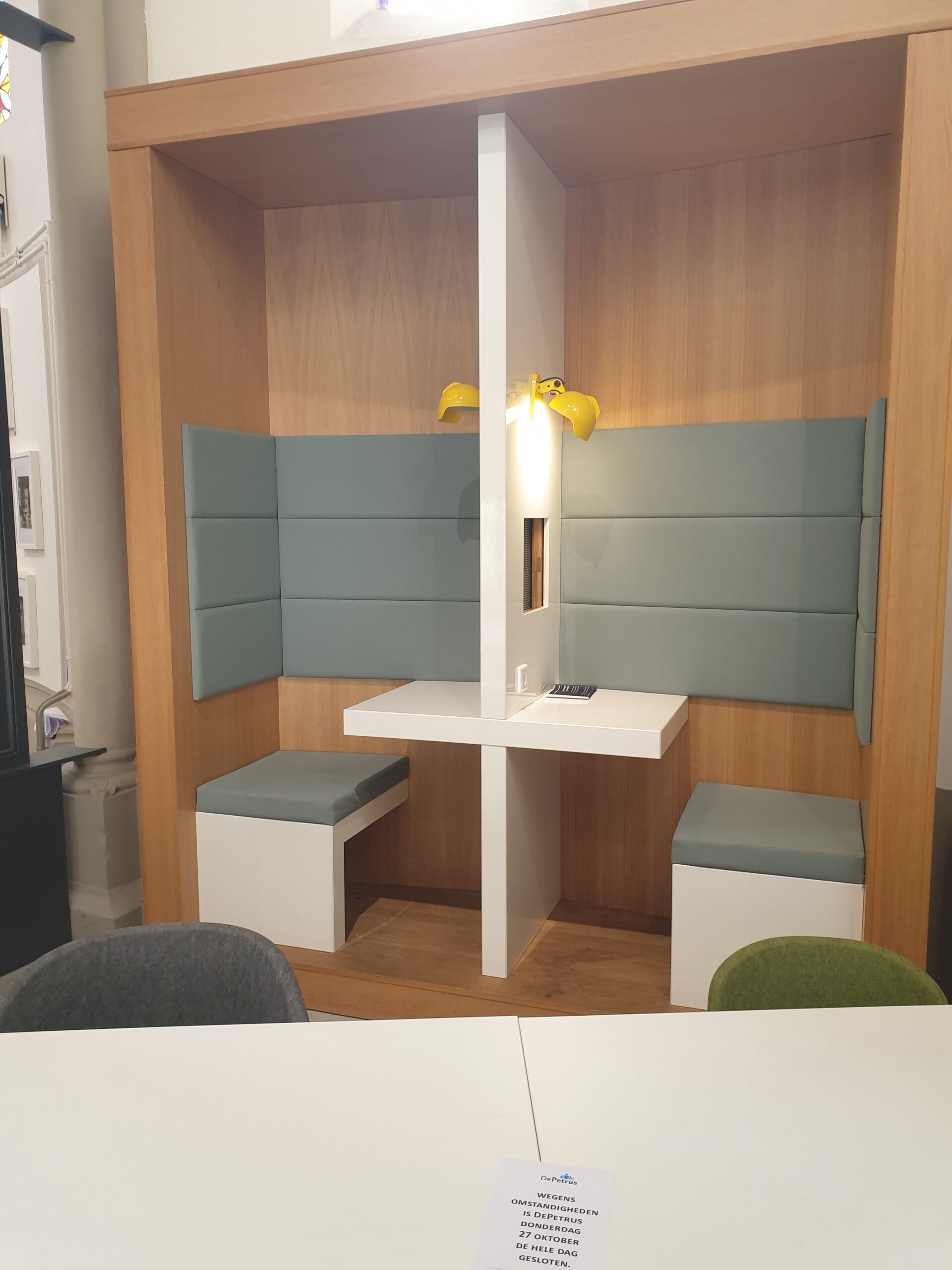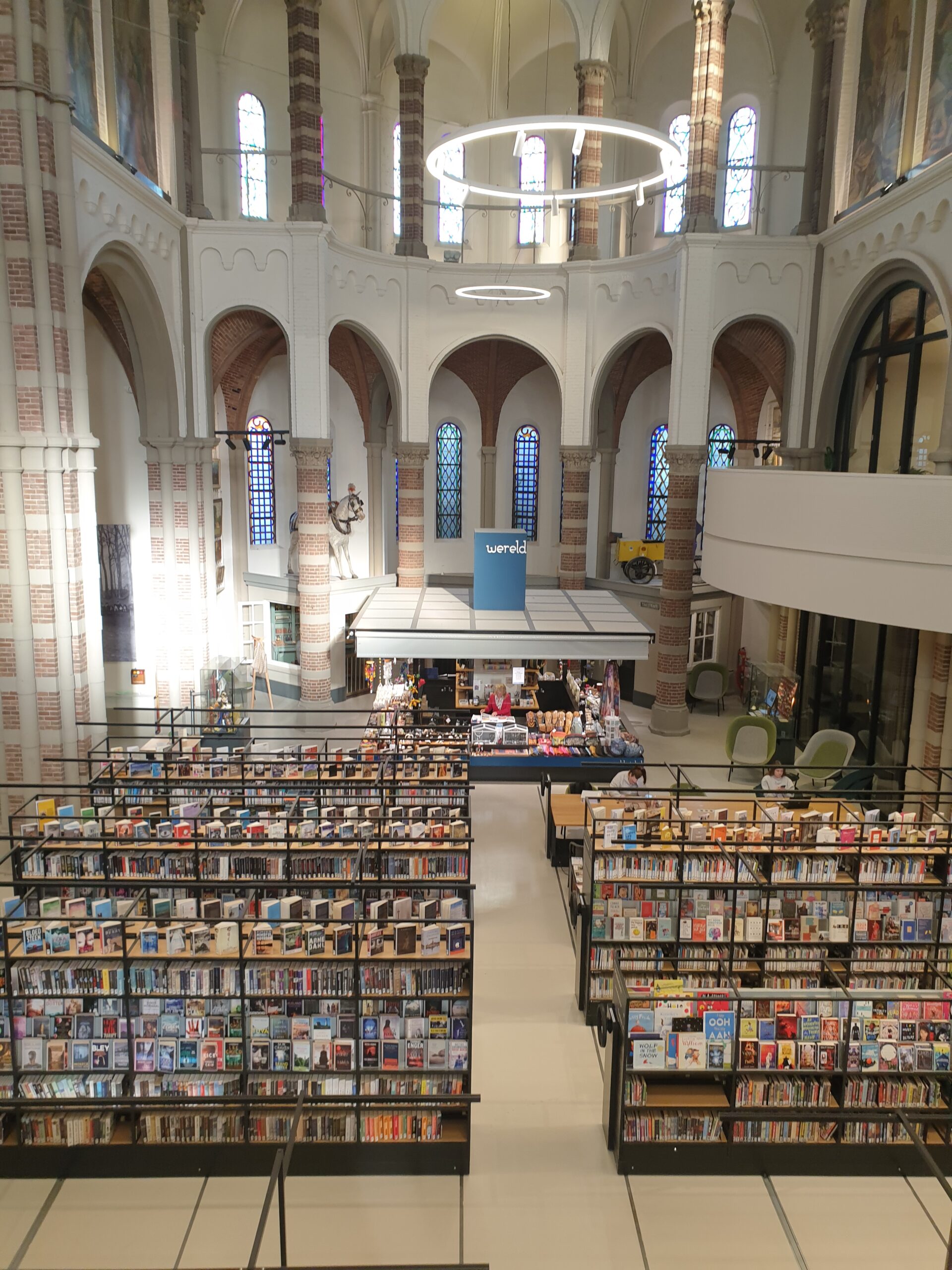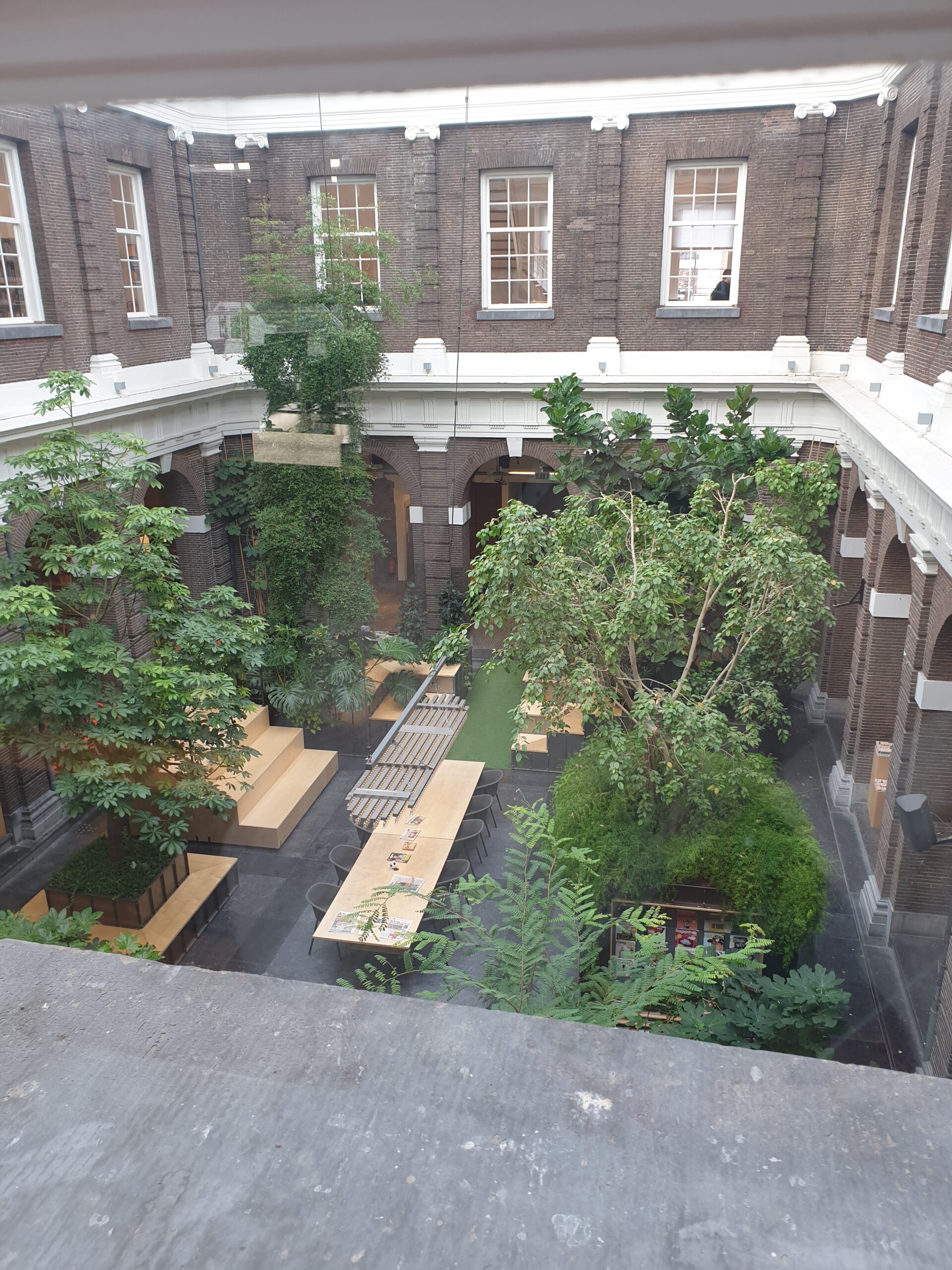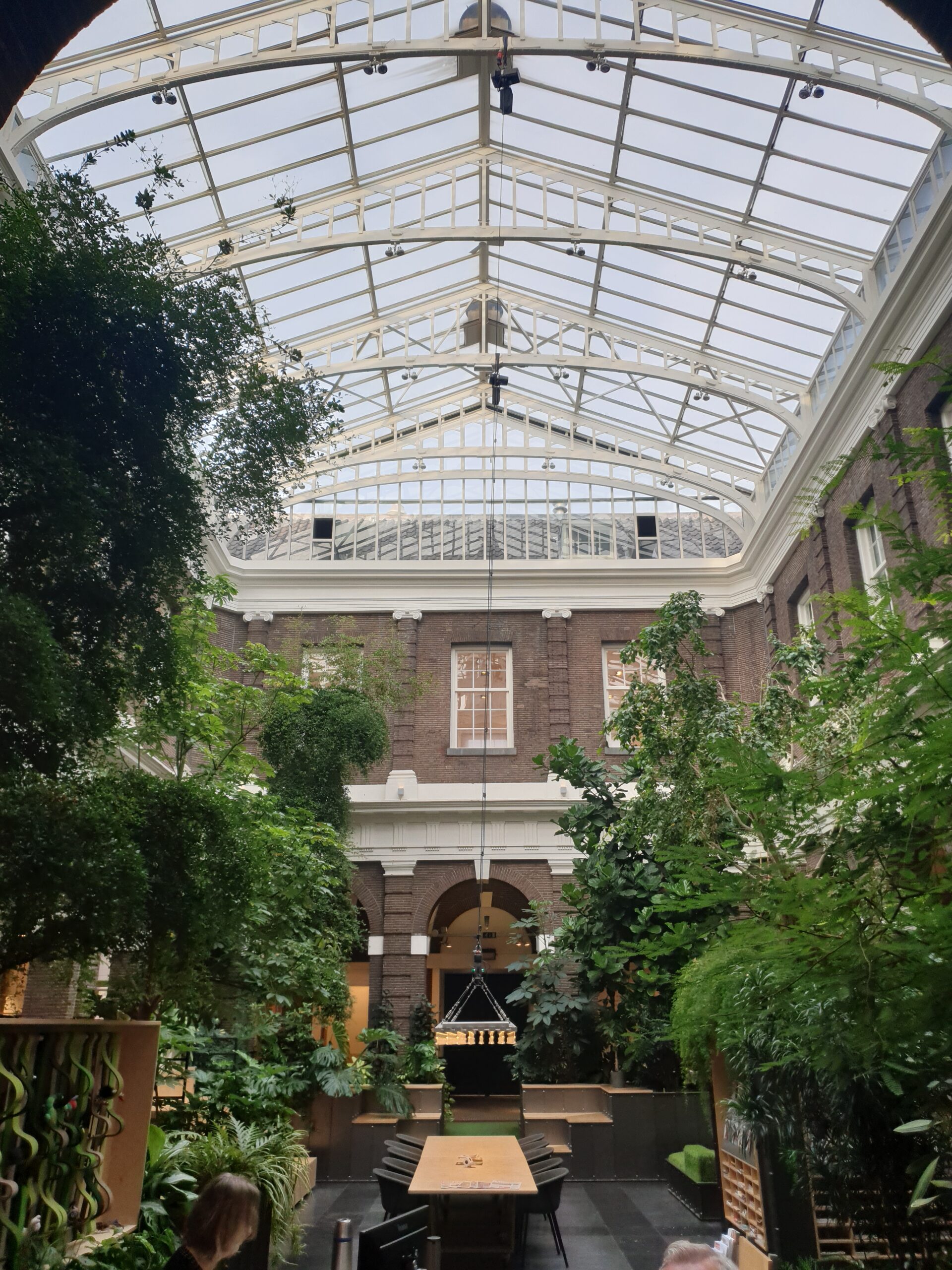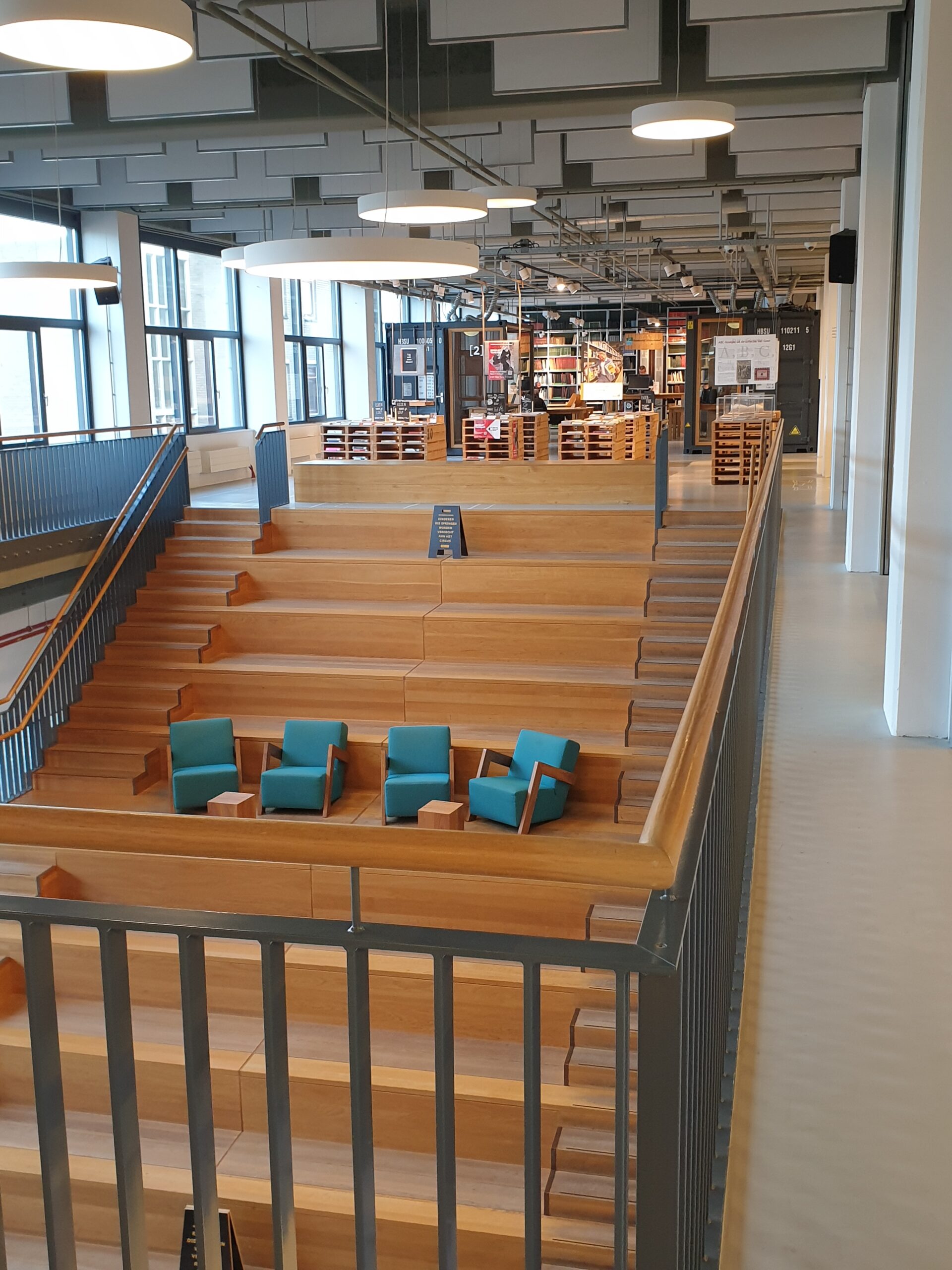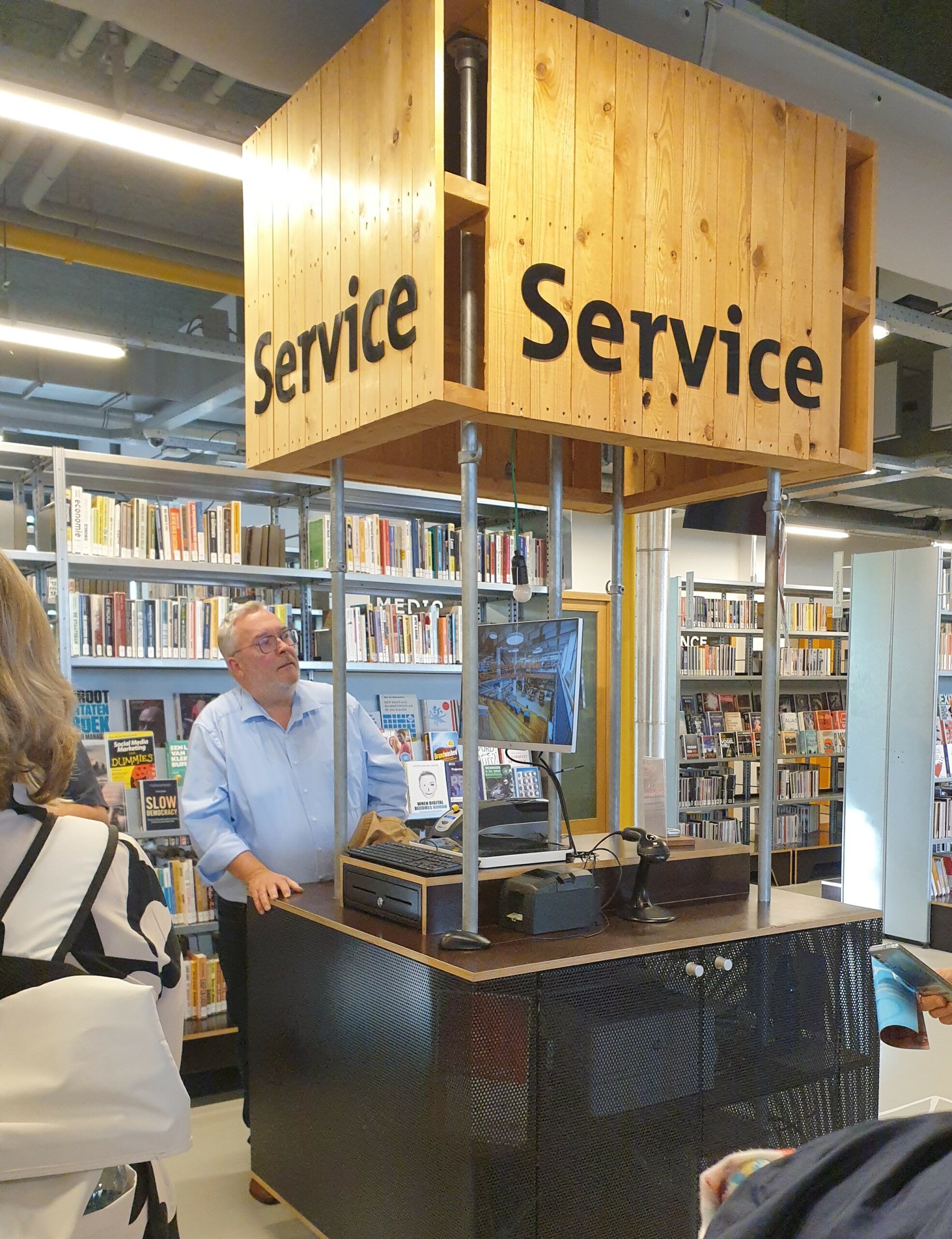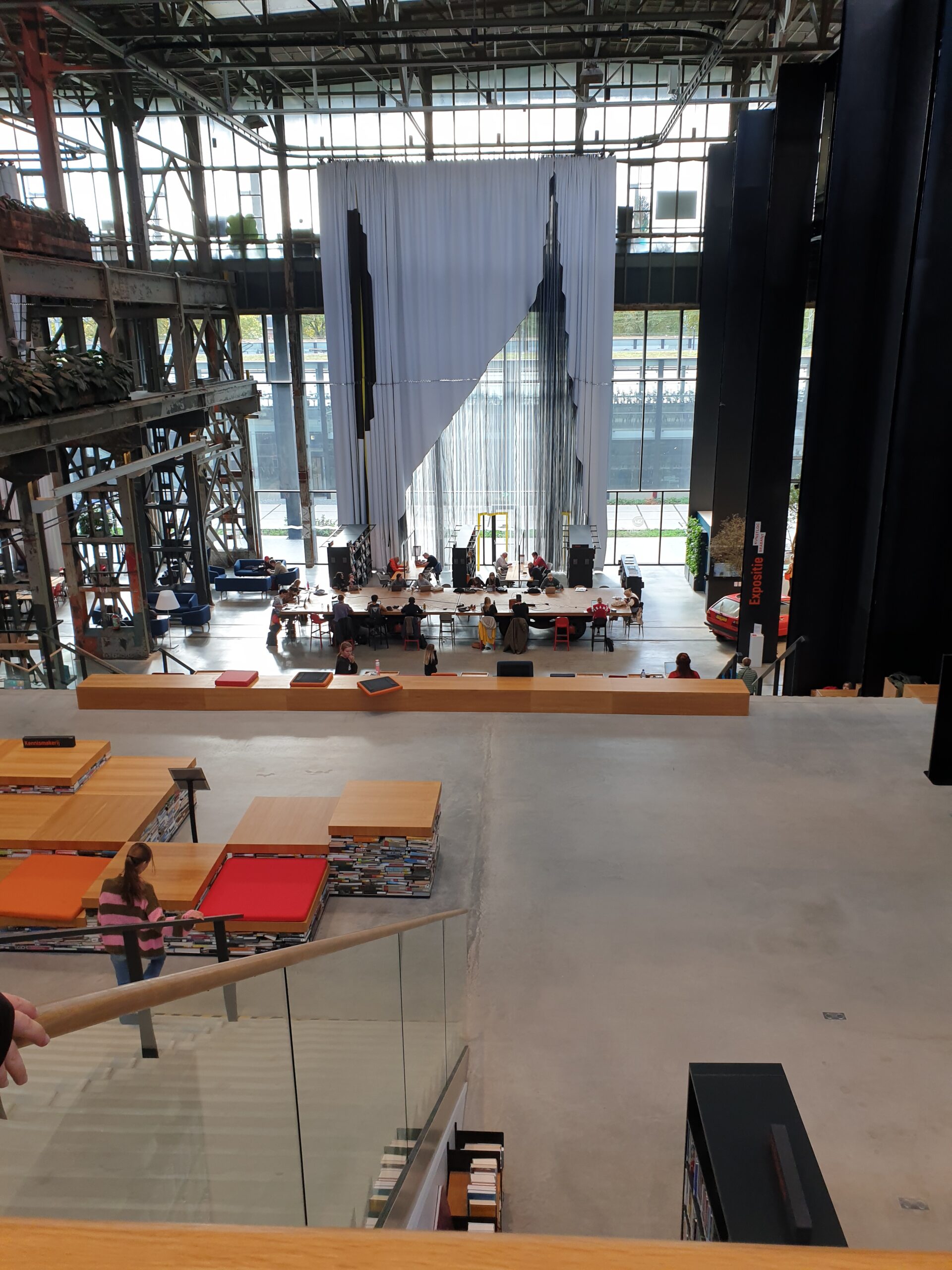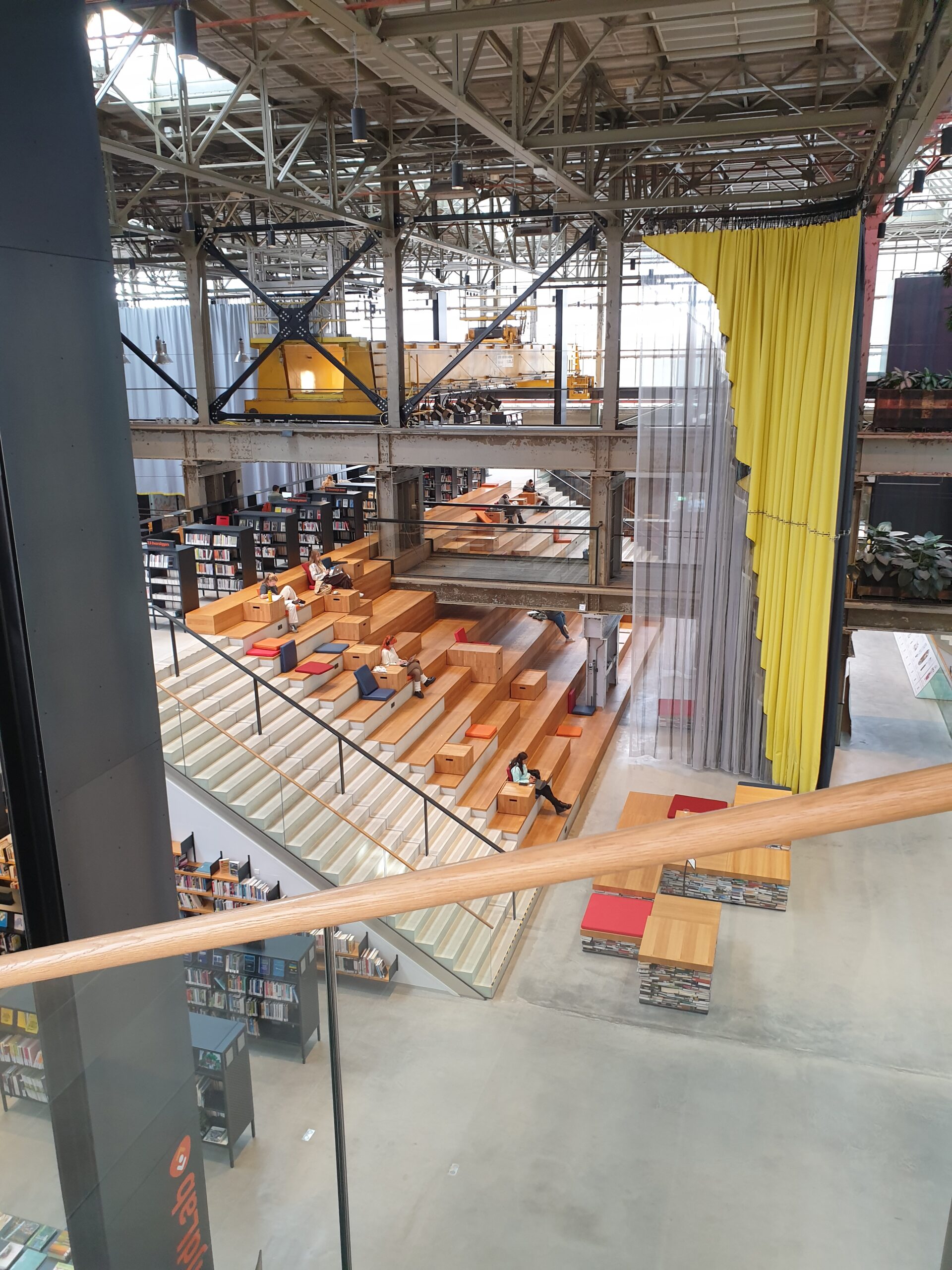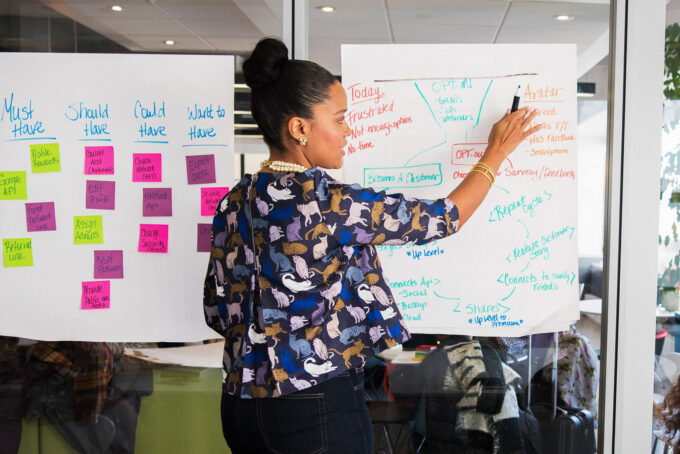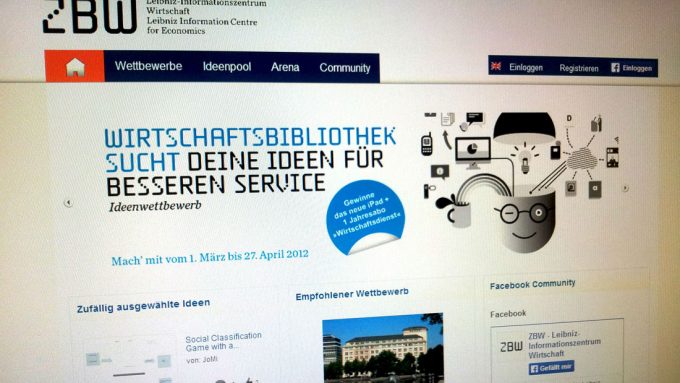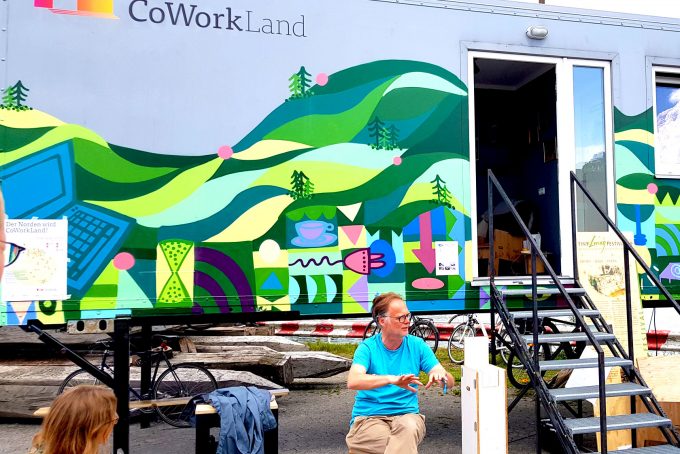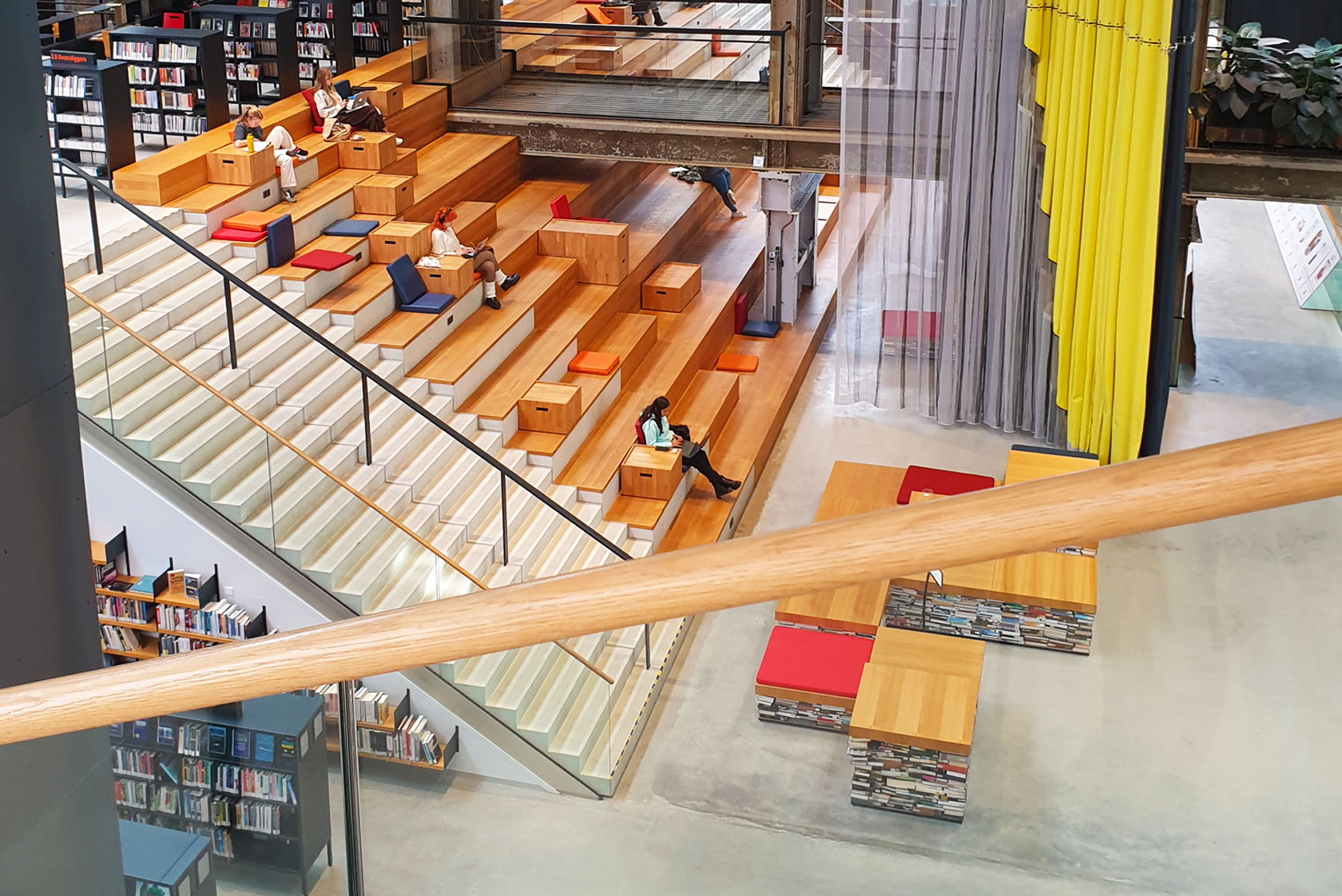
Innovations in Libraries: Impressions of a Study Trip to the Netherlands
ZBW staff member Alena Behrens recently had the opportunity to get to know nine very different libraries in the Netherlands on a four-day study trip. In this experience report she describes what she saw when she looked beyond her own nose and which places or conditions left a special impression on her.
Guest article by Alena Behrens
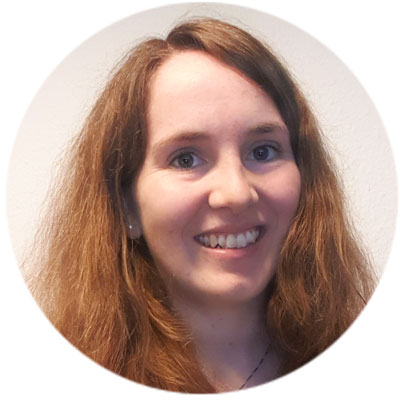
From 25 to 28 October 2022, I set out to get to know the Dutch library system as part of a study trip organised by Bibliothek & Information International. Together with 19 other employees from libraries all over Germany, I explored nine cities and their libraries. The stops on our trip were
- the Rozet Library in Arnheim,
- the Library in DePetrus Church in Vught,
- the Library LocHal in Tilburg,
- the Library Chocolade Fabriek in Gouda,
- the Erasmus University Library in Rotterdam,
- the Library DOK in Delft,
- the Library OBA in Amsterdam,
- the Library De Korenbeurs in Schiedam and
- the Neude Library in Utrecht.
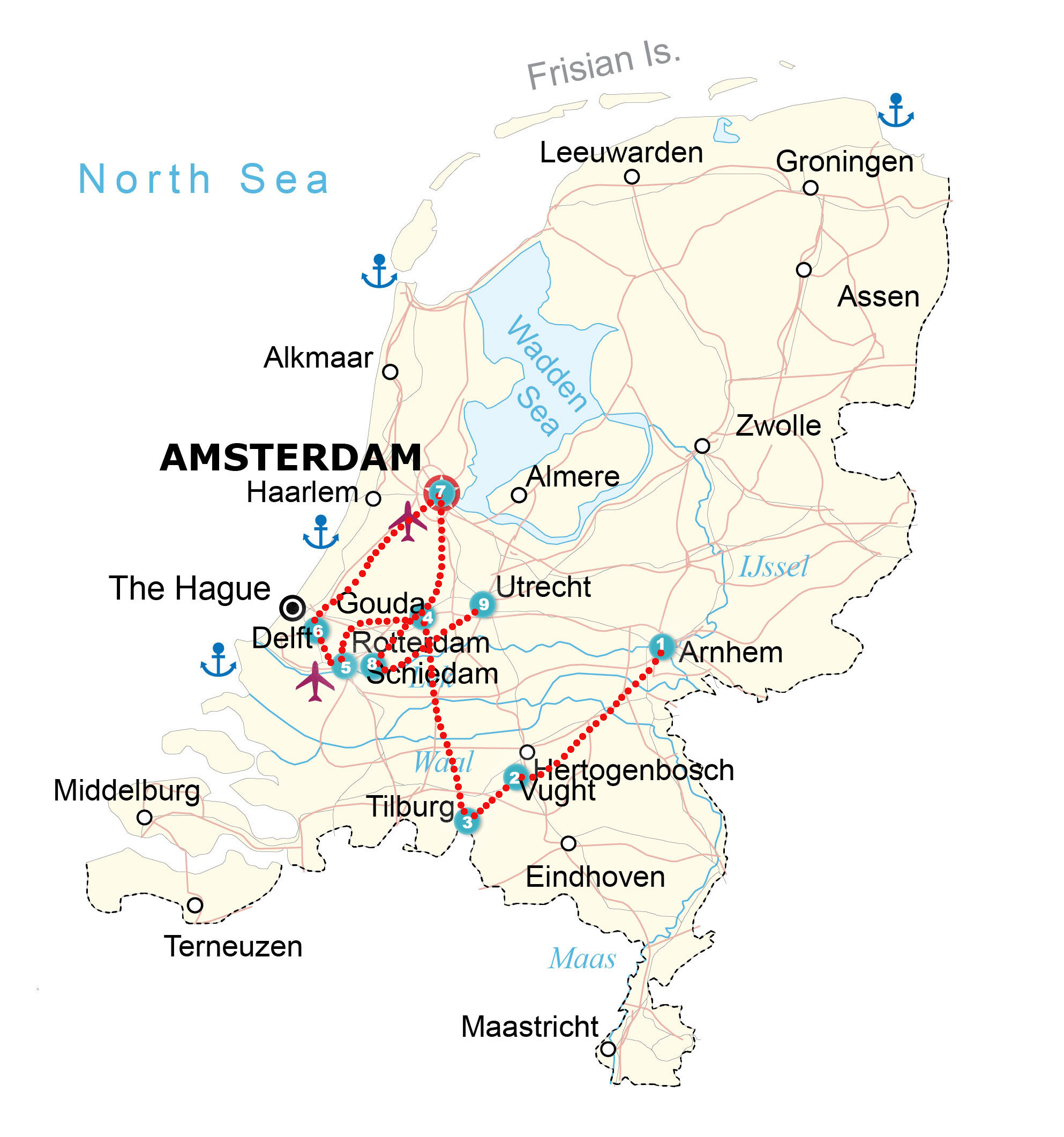
Stations of the study trip through the Netherlands on 25.10. – 28.10.2022, map by gisgeography.com
This report summarises some of the many special features and experiences of the trip.
„You have to change to stay the same.”
This quote by the painter Willem De Kooning is the motto of the Ministerie van Verbeelding, the Ministry of Imagination. This is not an official ministry, but a collective of architects, designers and librarians. They are the brains behind many of the impressive new library concepts and buildings, some of which we were able to visit on this journey. Rob Bruijnzeels is part of this collective. He accompanied us for a while to give us an insight into the work and structure of the Dutch library world.
To remain relevant and interesting, libraries must adapt to changes in society. In the Netherlands, for example, it is taken for granted that they offer consultation hours for advice on e-government. The self-image as a Third Place is also already omnipresent there. Public libraries are perceived as the living rooms of cities and are used accordingly.
A different organisational form and an efficient design of the work processes make this possible, as Rob Bruijnzeels explains to us further. In the Netherlands, public libraries are private initiatives and foundations. Although they also receive money from the municipality, they are not as dependent on it as in Germany. This gives them greater freedom. In addition, libraries of several municipalities often join together in a large library organisation that manages the organisation and central tasks (media purchasing and processing, management, staff organisation).
The Dutch have a long tradition as merchants. This mentality is also reflected in the country today. If something can be organised more efficiently and better, it is done that way. Departments for cataloguing and book processing no longer exist in the individual libraries. These tasks are taken over by a service provider. Because many libraries participate in this, it is cheaper than running individual departments everywhere. The staff can thus be used more efficiently in the programme work.
Library: not for everyone, but by everyone
Jan van Bergen en Henegouwen from the library De Korenbeurs in Schiedam introduced this principle to us. But it can also be found in other public libraries in the Netherlands. What is meant by this is that the library’s visitors participate in its development.
This is possible, on the one hand, through numerous volunteers. The library in Schiedam works with about 300 of them. A number that surprised all participants of the study journey. No one could have imagined this for Germany and our institutions. However, volunteer work has a long tradition in the Netherlands and is an important part of society. For many, it is a matter of course to get involved in their free time. That is why libraries with few staff and short opening hours, for example, can still offer many events. Our guided tours on the trip were also taken over by volunteers most of the time, only rarely did we speak to permanent library staff.
In this context, the term “community library” came up again and again. Everyone can get involved on a voluntary basis. Events are often organised at request of visitors. This way, the librarians know that there is a real need for a topic and what their target groups are interested in.
This system is complemented by a wide range of self-service offers. Visitors can borrow and return media themselves at the stations provided for this purpose. “Everyone becomes a librarian,” explains Rob Bruijnzeels. Consequently, there are hardly any classic lending or service counters left in Dutch libraries; instead, there are distributed information points. The open design lowers the inhibition threshold to ask for advice. The offers should be designed as low-threshold as possible in order to be an open meeting place for all residents of the community. The visitors are given a lot of personal responsibility, which creates a trusting relationship in the library and with its services.
Impressive and unusual architecture
The unusual and innovative architecture of some of the institutions visited should not go unmentioned. The libraries in the towns of Vught and Schiedam stand out in particular. When I entered the buildings, I didn’t have the feeling that I was entering a library.
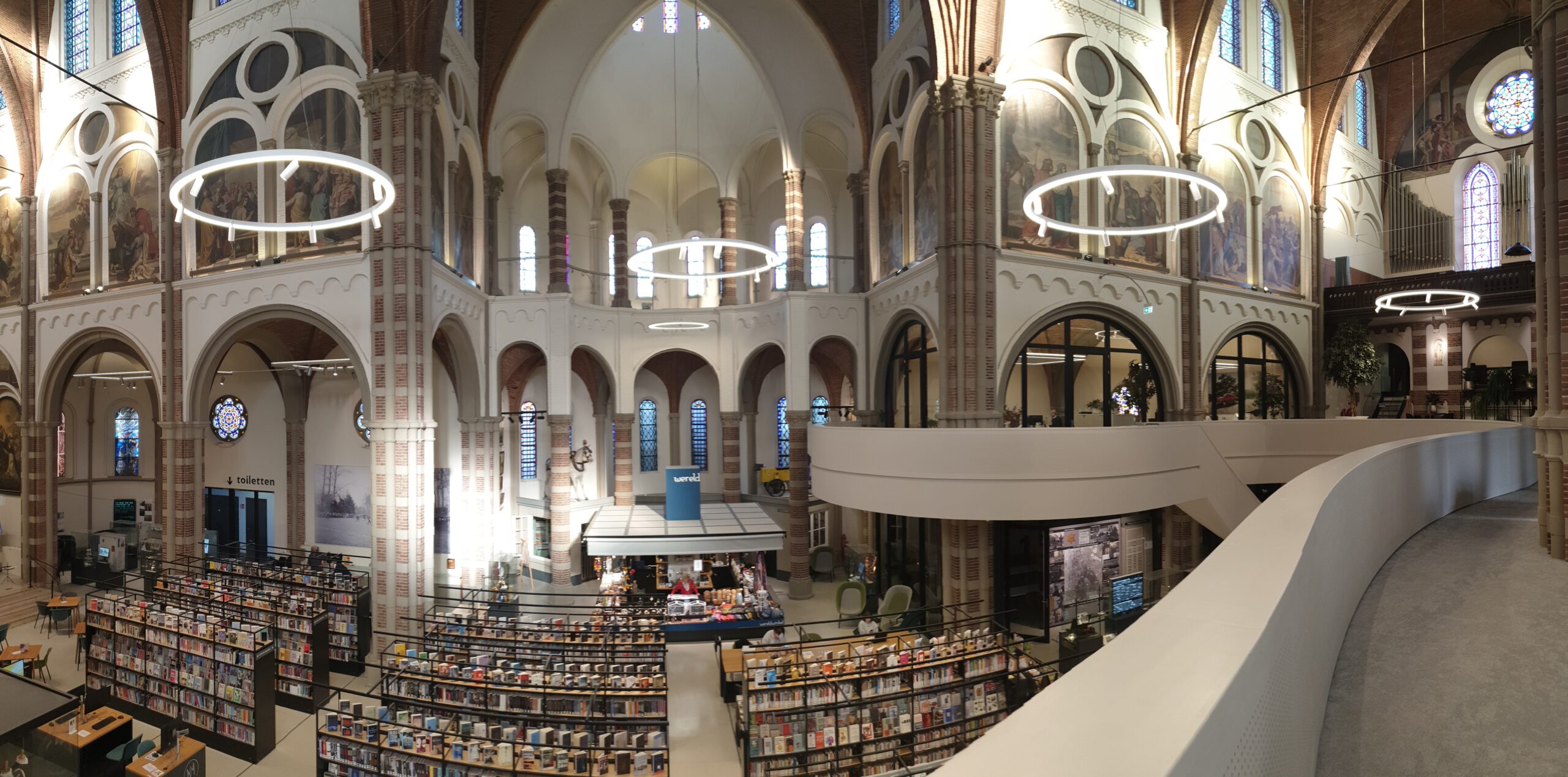
In Vught the library was built into an old church. This creates a special sense of space. With workstations in the look of confessionals, the two places are fluidly connected. In addition, the library merges seamlessly into a museum and a Third World shop. The combination of different offers has been very successful here.
In Schiedam I had the impression of entering a greenhouse. The covered inner courtyard has been landscaped with many plants to create a cosy garden where visitors enjoy spending time. The quote from the Roman orator Cicero “If you have a garden and a library, you have everything you need” has been completely realised here.
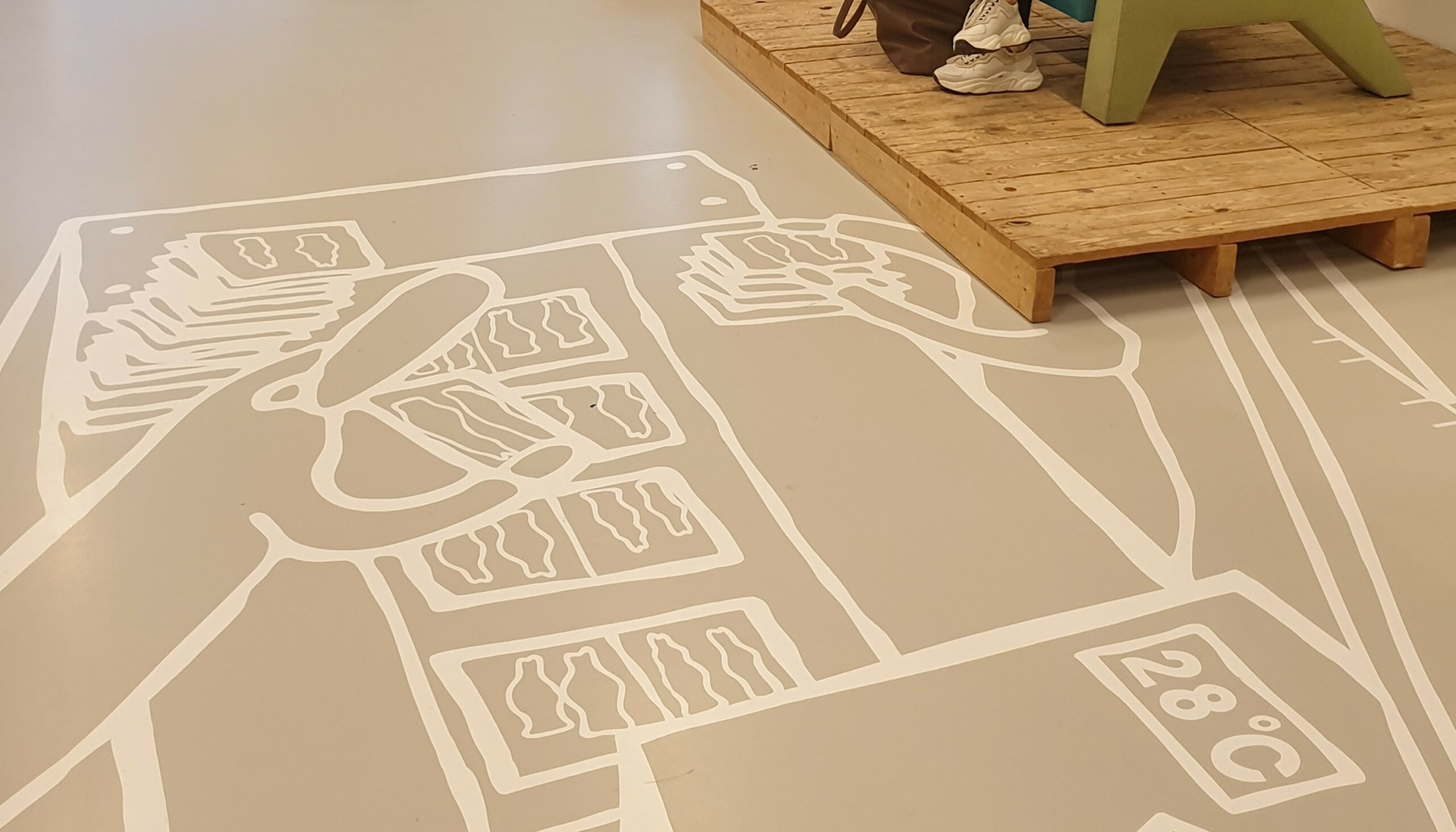
But there are also impressive libraries in Gouda and Tilburg that naturally echo the history of the buildings. In Gouda, the current library building was initially a chocolate factory. The building was converted into a library by adding false ceilings and walls. On the floor, there are drawings of the chocolate-making machines that used to be there. In this way, you also learn something about the processes of the old factory.
LocHal Tilburg, on the other hand, used to be a workshop for locomotives, as the name suggests. You can still see this today in the impressive size of the hall. But the crane for lifting the locomotives under the hall ceiling and a history corner also bear witness to this. Here, old pictures of the workshop are on display and former employees talk about their work.
In all the innovative power that lies within the libraries, there are always references back to the history of the buildings. This connection contributes to the charm of the libraries and provides an insight into the past of the city.
Conclusion on the study trip to the Netherlands
This journey exceeded all my expectations and showed once again that it is always worthwhile to look beyond one’s own nose. Libraries in the Netherlands are rightly regarded by us as innovative and forward-looking. I can only recommend taking part in exchange programmes and study trips when the opportunity arises.
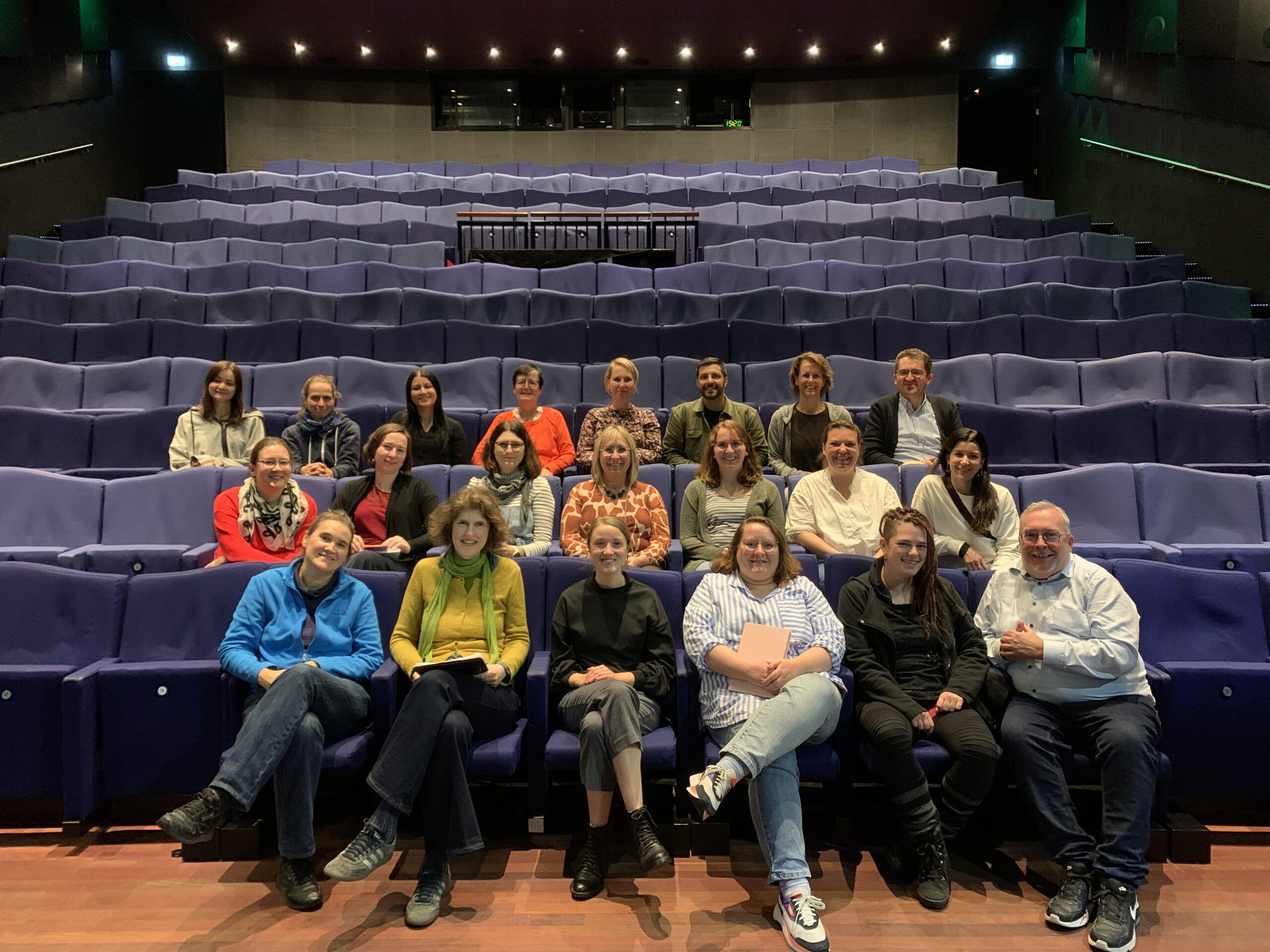
Together with 19 other employees from libraries all over Germany, I explored nine cities and their libraries
Everyone benefits from exchanging ideas, learning from each other and being inspired.
Background to the study trip to the Netherlands
The study trip (German) was organised by BI-International (BII). BII is a permanent commission of the Library and Information in Germany – Federal Union of German Library Associations (BID), which promotes international professional exchange in the library sector. Together with the Goethe Institute, BII also supported the trip financially. Marc de Lange from ekz benelux was our tour guide. I would like to take this opportunity to say thanks for the partial invitation. My personal opinion is not influenced by this.
This text has been translated from German.
This might also interest you:
- Study Trip to the Netherlands, 25.10. – 28.10.2022 | Day 1 & 2 (German)
- Study Trip to the Netherlands, 25.10. – 28.10.2022 | Day 3 (German)
- Study Trip to the Netherlands, 25.10. – 28.10.2022 | Day 4 (German)
- Information on BI-International and its Exchange Programmes and Study Trips
- A Powerful Network – Introduction to the Library System in the Netherlands (PDF, German)
- The Ideal Place for Students to Learn: Results of a ZBW Photo Study
- The Library as a “Public Living Room”: Impressions From Library Trips to Scandinavia, the Netherlands and Colombia – an Interview (German)
- Libraries as a Place After Corona: Hybrid and Participatory?
- Inspiring Libraries: Dokk1 in Aarhus, Denmark, and Utrecht University Library, Niederlande
- User Experience in Libraries: Insights from the Library of the University of Amsterdam
Alena Behrens works as a librarian in the user services department at the ZBW – Leibniz Information Centre for Economics. In addition to working at the service desk, her work focuses on the areas of user experience, library as a place of learning and information mediation. She can also be found on Twitter.
Portrait: Alena Behrens©
View Comments

Open Science & Libraries 2023: 25 Tips for Conferences, Festivals & Co.
Which conferences and events could be worth an (online) visit in 2023? We have put...

